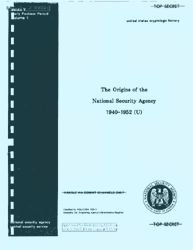Prince William was born in the fall of 1153, and Eleanor quickly became pregnant again when Henry returned from his travels and joined her in June
1154. She had a second son in February 1155, named Henry. With two sons in her lap, a handsome husband, and her own income from her own lands, the newly crowned queen of England enjoyed a luxurious lifestyle: both Eleanor and Henry appreciated the thrill of hunting, enjoyed musicians and poets who could offer sophisticated entertainment at court, and welcomed foreign visitors who gave her gossip about the newest in literature, culture, fashion, and the daring new polyphonic music. Henry deserved his moments of relaxation and amusement, as he worked feverishly to restore order to England after it had been torn apart by the long years of civil war. Eleanor actively helped him with the business of government, often acting as his deputy when Henry was required to oversee his domains in France. While Eleanor had Henry’s full confidence in her statecraft, they never met up more than once or twice a year for the first 12 years of marriage, and yet these meetings were very fruitful, as each time Eleanor conceived a child. After William in 1153 and Henry in
1155, Matilda was born in 1156, Richard in 1157, Geoffrey in 1158, Eleanor in 1161, Joanna in 1165, and finally John in 1166 when Eleanor was 44 years old. Henry was expectedly unfaithful, being away from his wife for months at a time, and sired many illegitimate children—including one with a notorious prostitute named Ykenai. Henry brought the woman’s son to court, perhaps as a playmate for Prince William, who was a few months older, and Eleanor became fond of the boy, whom the king named Geoffrey of York. Sadly, Prince William died at the age of three, but Eleanor raised the illegitimate Geoffrey with affection, and when he grew up he had a celebrated career in the church.
Henry was much more difficult to influence than the indecisive Louis had been, but Eleanor managed to have her way despite Henry’s stubbornness. The situation with Thomas Becket is a good example: Henry adored the man, giving riches and honors to his friend and constant companion while ignoring his wife. One of the honors Henry steered Becket’s way was the archbishopric of Canterbury in 1162—but much to Henry’s chagrin, Becket took the position very seriously, transforming from the king’s loyal friend into a champion of the church’s views, privileges, and authority. Feeling betrayed, Henry fought with Becket for eight years over issues small and large, and ultimately Becket was murdered in 1170. Behind the scenes, there is a strong tradition that Eleanor, who disliked Becket, encouraged Henry to find fault with the man and resent him.
After John was born, it appeared that Eleanor had enough of both Henry and childbearing (although she must have been past the age by the late 1160s) and increased the amount of time she spent in her French territories. The dynasty was settled when in 1170 young Prince Henry was crowned the Young King (while Henry II yet lived) and Prince Richard was confirmed as duke of Aquitaine. Eleanor moved her court to Poitiers and focused on being a patron of the arts.




 World History
World History









